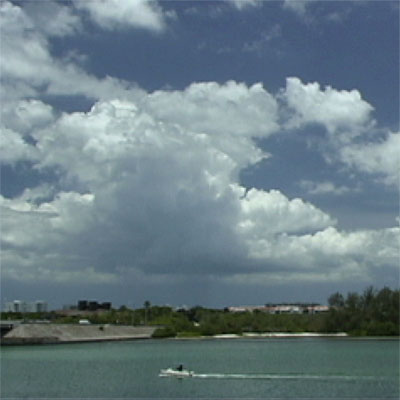 |
 |
Science Minutes DVD
Episode 10: Going Green
Focus Question: What impacts do humans have on their environment?
Standards
National Science Standard
- Content Standard F: Science in Personal and Social Perspectives (Grades 5-8)
Next Generation Sunshine State Standard
| Grade 5: | SC.5.L.15 Diversity and Evolution of Living Organisms |
| SC.5.L.17 Interdependence |
Vocabulary
Biodegrade capable of being broken down especially into harmless products by the action of living things
Conservation The official care, preservation and protection of something, such as natural resources in the environment
Ecosystem the complex of a community of organisms and its environment functioning as an ecological unit
Environment the circumstances, objects, or conditions by which one is surrounded; the complex of physical, chemical, and biotic factors (as climate, soil, and living things) that act upon an organism or an ecological community and ultimately determine its form and survival
“Going Green” tending to preserve environmental quality, as by being recyclable, biodegradable, or nonpolluting
Pollution environmental contamination with man-made waste
Sustainable the method of harvesting or using a resource so that the resource is not depleted or permanently damaged
Classroom Activity
Supplemental Links
- United States Environmental Protection Agency, www.epa.gov
Further Investigation with Online Activities
- Discovery Education: Pollution Solutions,
http://school.discoveryeducation.com/lessonplans/programs/finiteoceans/ - Discovery Education: Recycling,
http://school.discoveryeducation.com/lessonplans/programs/recycling/ - Discovery Education: Water, Water Everywhere?,
http://school.discoveryeducation.com/lessonplans/activities/watereverywhere/ - Discovery Education: Aquatic Habitats,
http://school.discoveryeducation.com/lessonplans/programs/aquatichabitats/
Oral Assessment
Transcript
Kasey
Lately, there's been all this talk about going green. But what exactly does that mean and why do we need to do it? Well if you stop to think about it, we need our environment and our environment needs us too. So what can you do to help your environment and go green? Try some of these tips.
Well one thing you can do is become pals with plastic. Use a reusable plastic water bottle rather than buying a new one. It takes up to 500 years for plastic to biodegrade. Think about that next time.
Next time you are at the grocery store and they ask you for paper or plastic—say neither. You brought your own. Use a canvas tote that you bring from home, and you know what, a lot of these are made from recycled products.
Did you know that a small city can produce up to two and half tons of pet waste in a day? Disgusting. Well if you don't want this pet waste and those diseases in you local waters, why don't you go ahead and pick up after your pet. He'll thank you for it and so will we.
And speaking of poop, convince your parents to put a full bottle of water in the tanks of your toilets. It's quick, it's easy and every single time you flush you can save up to a quart of water.
Wash your car at commerical car washes that recycle water. Or if you have to do it at home, wash your car in the grass because all that oil and dirt that flows off your car, well it goes out into our storm drains and into our waterways. And while you are at it, turn off the hose when you are not using it to conserve water.
So try these tips and find out what else you can do to go green by visiting our website. Mother Nature will thank you and remember, the fate of the planet is in your hands.

